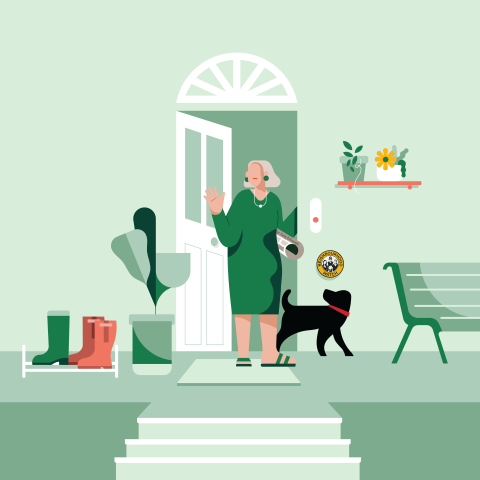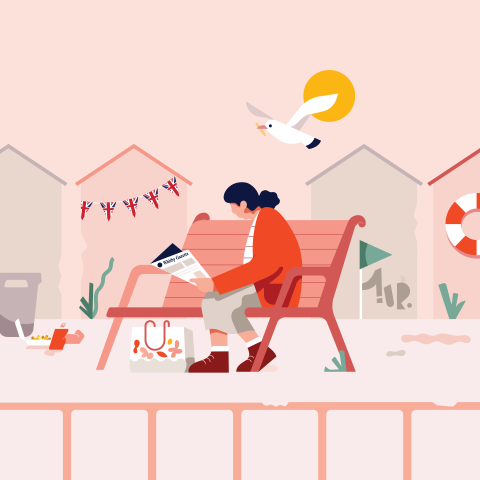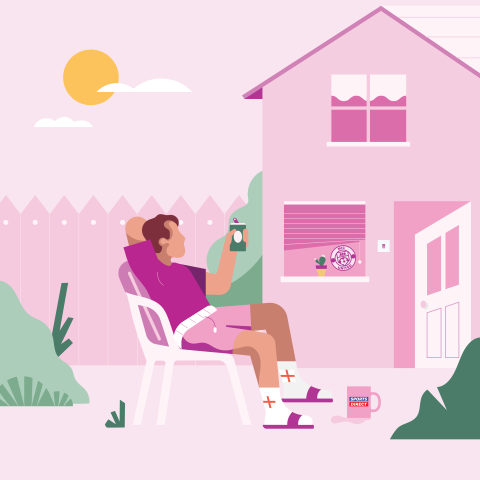8 per cent of the population

Respectful of authority and tradition, Traditional Conservatives believe in individual responsibility and established norms that have served them well. Nostalgic for the past but optimistic about the future, they are deeply sceptical of many forces of change such as immigration or the path to net-zero.
“I definitely feel that we are in a very bad place at the moment, but if you look at the rest of the world, I think the world's in a bloody bad place at the moment as well.”
Chris, Cirencester
“I just think that there is a very big lack of respect in the country for authorities mainly. Children have no respect for their elders these days... I was brought up with respect for my elders, but I'm afraid to say that's gone completely now.”
Susan, Great Yarmouth
Key words
Comfortable, traditional, institutional, optimistic, meritocratic, stable, individualist, risk- averse, conservative.
What they worry about
Declining respect for authority and tradition, social disorder and antisocial behaviour, economic instability, threats to British institutions, breakdown of family values.
Where you might find them
In rural areas and market towns; in detached houses they own outright; attending church or community events; reading broadsheet newspapers; in constituencies such as Hexham, Stratford-on-Avon, and Richmond and Northallerton.
How they get their news
The Times, Telegraph, and Financial Times; BBC Radio 4 and television news; 6pm BBC News. They seek out expert opinion and trust established media outlets over social media voices. They are unlikely to believe any information their grandchildren might tell them they learned on social media.
Learn more about Traditional Conservatives

Elizabeth
Elizabeth lives in a cottage in the Cotswolds that she and her late husband bought twenty years ago, surrounded by gardens that she tends with the same care she once brought to raising her children.
At 72, she maintains routines that have served her well - prayers at the village church where she arranges flowers, afternoon walks through lanes she has known since childhood, and evening news on BBC One while she works on her latest knitting project for her grandchildren. Elizabeth takes genuine satisfaction in these patterns, viewing them not as limitations but as the foundations of a well-ordered life that has weathered decades of social upheaval largely intact.
Elizabeth's concerns about the direction of the country are tempered by her fundamental belief that Britain has weathered worse storms and emerged stronger. When she sees news about rising crime or social unrest, she feels genuinely troubled but not despairing - these problems seem to her like symptoms of abandoning tried-and-tested values rather than evidence of inevitable and irreversible decline.
She voted Conservative again in the last election despite her frustrations with the party's recent chaos and more than anything else its inability to control immigration, believing that proper leadership and a return to traditional principles can restore the country's equilibrium without needing to tear down institutions that have served Britain well for centuries.
When her grandchildren visit and challenge her views on issues like gender identity or climate change, she listens politely but remains convinced that some eternal truths about human nature and social order should not be discarded simply because they have become unfashionable.
Elizabeth owns her home outright, has a comfortable pension, and believes that individual responsibility and hard work remain the surest paths to prosperity. When she hears about young people struggling to buy homes, she sympathises but also wonders whether they have made the necessary sacrifices or shown the patience that her generation displayed.
Elizabeth’s neighbours still help each other, the parish council makes things run well, and many local traditions add to the sense of community in her area. Elizabeth thinks that Britain may feel less broken if people in big towns and cities would learn a bit more about the rural way of life.
When political debates become too heated or complex, Elizabeth tends to retreat back to the certainties of her faith and community, confident that the institutions she has relied upon throughout her life - the Church, the Monarchy, Parliament - will ultimately preserve what matters most in Britain today, whatever the storm.
Explore the other Segments:





